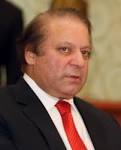Pakistani Prime Minister Nawaz Sharif on Wednesday called on the SAARC member states to fight to resolve common problems like poverty, rather than fighting against each other.
Speaking at the inaugural session of the 18th South Asian Association for Regional Cooperation (SAARC) Summit here, he underscored Pakistan’s high prioritisation of SAARC, adding that it epitomised the aspirations of the peoples of the region to advance peace, progress and prosperity.The Pakistan PM said his country stands with the people in enhancing the cause of regional cooperation.
“The theme of the 18th SAARC Summit -Deeper Integration for Peace and Prosperity – is most appropriate,” Sharif said, adding it reflected a common desire and created a win-win scenario.
He expressed his happiness that SAARC is moving towards democratic transformation, no doubt with an eye towards his own country’s first successful transfer of power through elections following an elected government seeing out its full term.
Sharif said SAARC must capture the dreams of the people of the member countries.
He also pointed out the need for cross-border information sharing and the need for an early flood forecasting system in the region. Pakistan has suffered from horrendous floods in recent years.
In pursuing the goals of SAARC, action plans are needed for the elimination of poverty, scientific development and a dispute-free South Asia, he added.
The Pakistani Prime Minister emphasized the important role of SAARC observers – that at the moment include its close ally China. Leading up to the summit, speculation was rife of Beijing seeking an elevated role within the SAARC framework.
He also stressed the need to unleash the talent of the youth of the region, and their creativity for the betterment of the SAARC region. This has been a recurring theme in the leaders’ addresses, pushed forward by the high proportion of youth in the region’s population.
According to the SAARC Youth Charter 2013, South Asia is home to 26 percent of the global youth population. – UNB




